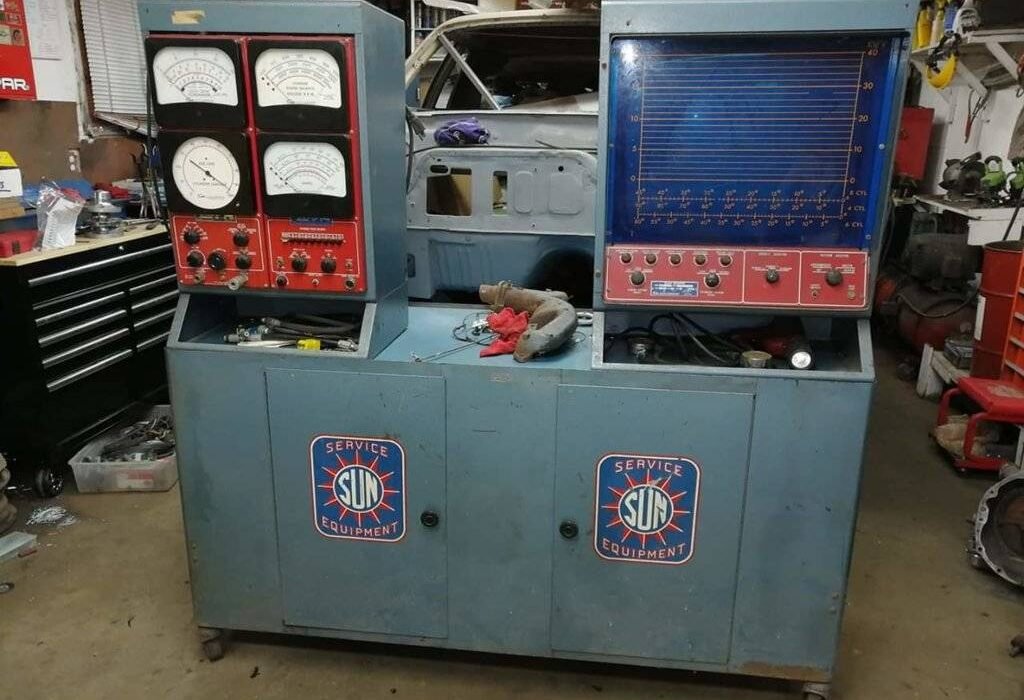Engine analyzers are essential tools in modern automotive workshops. They provide comprehensive diagnostics by measuring and analyzing key engine parameters. With the complexity of today’s vehicle systems, using an engine analyzer allows mechanics to detect issues quickly and accurately, ensuring better performance and faster repairs.
How Do Engine Analyzers Work?
Engine analyzers connect to a vehicle’s electronic control unit (ECU) or other diagnostic ports to monitor engine performance. These devices evaluate several crucial parameters, including:
- Ignition Timing: Ensures that the spark plugs fire at the correct moment for optimal combustion.
- Fuel System Efficiency: Measures fuel pressure and injector performance to maintain the correct air-fuel ratio.
- Emissions Levels: Monitors exhaust gases to ensure compliance with environmental standards.
- Cylinder Balance: Identifies misfiring or underperforming cylinders.
- Battery and Charging System: Evaluates voltage and alternator health.
By providing this detailed analysis, engine analyzers help prevent breakdowns, improve fuel efficiency, and extend engine life.
Types of Engine Analyzers
Handheld Engine Analyzers
Compact and portable, handheld analyzers are ideal for quick diagnostics. They offer basic readings and are suitable for mobile mechanics or small workshops.
PC-Based Engine Analyzers
These analyzers connect to a computer for more detailed diagnostics and data logging. They are ideal for advanced troubleshooting and long-term performance monitoring.
Modular Diagnostic Systems
These advanced analyzers are customizable with additional modules for specialized diagnostics. They are used in high-end workshops for in-depth analysis and complex vehicle systems.
Key Features to Look for in an Engine Analyzer
When choosing the best engine analyzer for your workshop, consider the following critical features:
Compatibility
Ensure the analyzer is compatible with various vehicle makes and models. Modern vehicles use advanced OBD2 protocols, so your analyzer must support them. Look for devices compatible with CAN-Bus, SAE J1850, and ISO 9141-2 standards.
Data Accuracy and Speed
Accurate and fast diagnostics save time and ensure reliable repairs. High-quality engine analyzers offer real-time data streaming and detailed fault code descriptions.
Software Updates
Automotive technology evolves rapidly. Choose an engine analyzer with regular software updates to stay compatible with new vehicle models and diagnostic techniques.
User Interface
A user-friendly interface is crucial for quick and efficient diagnostics. Look for devices with clear displays, intuitive menus, and detailed data reports.
Advanced Diagnostic Capabilities
For professional workshops, advanced features like bi-directional control, ECU coding, and waveform analysis are invaluable. These capabilities allow more precise diagnostics and repairs.
Top Engine Analyzers for Workshops in 2025
- Bosch KTS 590 Known for its accuracy and advanced features, this analyzer supports a wide range of vehicles and offers extensive diagnostic capabilities.
- Autel MaxiSYS MS919 A versatile and powerful tool, ideal for professional workshops. It provides comprehensive engine diagnostics and includes bi-directional control.
- Snap-on MODIS Edge This premium analyzer combines advanced diagnostics with intuitive operation, making it suitable for high-end repair shops.
- Launch X431 V+ A reliable option with broad vehicle coverage and advanced features like ECU coding and live data analysis.
- Foxwell GT60 An affordable yet powerful choice for small to medium workshops, offering extensive diagnostics and regular software updates.
Choosing the Right Engine Analyzer for Your Needs
When selecting an engine analyzer, consider your workshop’s size, the types of vehicles you service, and your diagnostic requirements. A high-end analyzer with advanced capabilities is essential for professional workshops handling diverse and modern vehicles. For smaller operations, a reliable and user-friendly device will meet most diagnostic needs.
Maintenance and Calibration
To maintain accuracy, regularly calibrate your engine analyzer according to the manufacturer’s guidelines. Keep the software updated and store the device properly to ensure long-term performance.
Final Thoughts
Investing in the right engine analyzer improves diagnostic accuracy, enhances repair efficiency, and boosts customer satisfaction. Whether you run a small garage or a large automotive center, a high-quality engine analyzer is a valuable tool for keeping up with modern vehicle technology.
Stay ahead in automotive diagnostics with the latest tools and expert insights from epci.ng.
